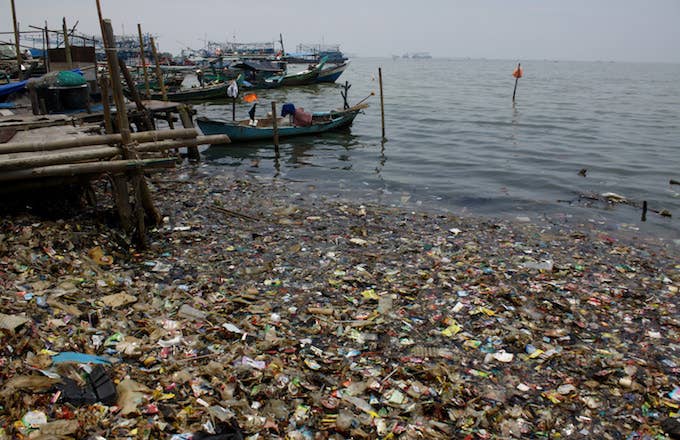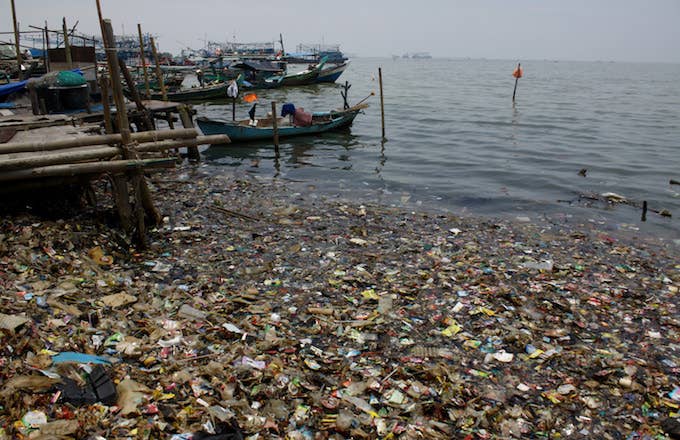
Here’s something to bum you out: because humans are the way that they are, a thing called the Great Pacific Garbage Patch exists, it’s twice the size of Texas, and it’s only getting bigger. In fact, some estimates claim that by 2050, there will be more plastic than fish in the ocean. The sheer size of this problem might appear insurmountable, but a new accidental scientific discovery is providing some hope in the plastics pollution crisis.
Two years ago, a team of Japanese scientists found bacteria that could “eat” one of the world’s most popular kinds of plastics, polyethylene terephthalate, a.k.a. PET. However, in the process of studying just how this bacteria breaks down plastic, British and American scientists accidentally created a mutant enzyme that’s even better at breaking down PET. Their results are to be published in scientific journal Proceedings of of the National Academy of Sciences this week. Popular Scienceclaims that this discovery could “finally allow us to recycle plastic drink bottles for the first time ever.”
The discovery is significant because plastic has become one of the most concerning environmental issues of our time. More than 1 million plastic bottles are bought around the world every minute, and most of them are made from PET, which can take up to 400 years to break down naturally. The newly discovered mutant enzyme can break down PET in just a few days.
Even though PET is relatively easy to recycle, more than half of PET waste around the world is not collected for recycling. Additionally, only seven percent of PET bottles are recycled into new bottles.
“Current recycling strategies for PET bottles mostly focus on mechanical recycling, so they chop the bottles up and use them for applications that typically do not need the same materials requirements as bottles,” study co-author Gregg Beckham, a researcher at the U.S. Department of Energy’s National Renewable Energy Laboratory, told Popular Science. “Engineered enzymes that break PET down to its building blocks would enable the ability to do full bottle-to-bottle recycling.” He added that this would hopefully decrease oil drilling, since the demand for new plastic production would be lower.
“Akin to laundry detergent, which contains many enzymes that are produced at the industrial scale to clean our clothes, one could envision a PET-degrading enzyme system that is able to take PET bottles in a large industrial reactor with hot water and break the bottles down rapidly to their building block constituents,” Beckham said. “I anticipate that this will be a reality in the next decade or, hopefully, much sooner.”
Nevertheless, there are still those who are more cautious about the possible significance of the breakthrough. Win Soetaert, head of the Industrial Biotechnology Centre at the University of Ghent, warned that this new breakthrough could be a “slow process” since the new enzymes are not present in nature and would therefore need to be produced and then added to PET plastic.
Louise Edge, the senior oceans campaigner for Greenpeace, pointed to a larger issue: we must change how we approach and consume plastic products on a wider scale.
“What we really need are system changes to reduce the volume of throwaway plastic packaging and make sure plastic drinks bottles are collected and separated effectively,” Edge said. “An enzyme alone can’t clean up the complex and widespread legacy of plastic pollution that we have already created.”

